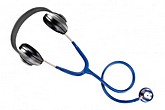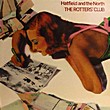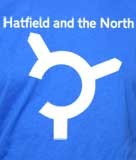|
|

From head to heart Following our retroscope series going on for several years, here we go again. Yes, for one more year! Here's Speakers' corner's cousin; From head to heart. Luna Kafé's focused eye on great events, fantastic happenings, absolute milestones, or other curious incidents from the historic shelves'n'vaults of pop'n'rock. Blowing our ears and our head, punching our chest and shaking our heart, or simply tapping our shoulder. Making us go sentimental, but not slaphappy. This moonth we have dusted off another 40 year old platter in our series of highlighting albums from the past. The LK golden platters club. This moonth's selected album in the spotlight was the group's second and final studio album. Before they faded and split, into numerous directions with other projects. Check in, dig in for some amusement from the progressive era of popular/rockular music. Go to the club to check out their musical, as well as lyrical escapades. With 'mumps' featuring 'cream donuts', 'lumps' and a 'prenut'. Go check out their prog-playful musical content, their sound of the interplay between human emotions and the endocrine system.
Hatfield And The North Tadpoles keep screaming in my ear: Hatfield And The North, named after road signs to lead you out of London to the, you know, North, seems to incorporate everything that the so called Canterbury scene was and probably still is about. The scene is linked to the archbishop town in Kent, south-eastern England because of the origins of the band The Wilde Flowers there in the mid 1960s that later evolved into the much more well-known groups Soft Machine and Caravan. The scene's family tree has grown wide and wild(e) when members of those two bands left to pursue solo careers (Kevin Ayers, Robert Wyatt, Daevid Allen, Hugh Hopper to name a few from the former band) or to start new constellations and bands (Gong, Matching Mole, Hatfield etc.) with each others or new members, that again formed new bands later on etc. etc. etc. The scene might be characterised by jazz-influenced pop and rock with witty and down to earth lyrics. Some times the jazz takes completely over. You can find more on the origins of the scene in our Memories-section. Only one of the members of Hatfield can boast of a real Canterbury background, bassist, lead vocalist and songwriter Richard Sinclair who was born and bred in the town and one of the original members of The Wilde Flowers in 1964. He quit quite quickly but rejoined the remains of the band to form Caravan in early 1968. After Caravan's first four (and best) albums, Richard left in 1972 to join the Miller brothers of Delivery, see below. Keyboardist and songwriter Dave Stewart (no, not the guy from Eurhythmics!) came from central London where he formed the band Uriel at the age of 17. Uriel's guitarist Steve Hillage left in 1968 to go to university in (surprise-surprise!) Canterbury. The band continued as a trio but was forced by their management to change the name to Egg (who thought the name taken from one of God's archangels was too similar to Urinal). They secured a recording contract with Decca and released two albums influenced by the music of Soft Machine. After the second finally was released in 1971, after considerable delay, the band didn't manage secure a new recording contract and folded in 1972. But in between the two Hatfield And The North albums, Dave persuaded Virgin into recording a new third one. Drummer and songwriter Pip Pyle and guitarist and composer Phil Miller had played together in the blues-oriented and Hertfordshire-based band Delivery (not far from Hatfield) along with Phil's brother Steve, sax-player Lol Coxhill and most notably singer Carol Grimes. In 1971 Pip went off to Gong that had been established in France by former Soft Machine co-founder and guitarist Daevid Allen. [We might add that Pip also teamed up with Robert Wyatt's ex-wife Pamela (see the lyrics below) and acted as the stepfather of Robert's and Pam's two children. Their by then about six year old son Sam can be seen in hippie garments similar to the band members' in front of Pip on the back cover photo of Gong's 1971 album Camembert Electrique...] In the autumn 1971 Phil went to establish Matching Mole, the new band initiated by Robert Wyatt after he had left (or more correctly being forced out of) Soft Machine. Meanwhile Phil, brother Steve (who by now was a member of Caravan) and Richard Sinclair also established a new line-up of Delivery in 1972 that eventually evolved into Hatfield. We might also add that one of the ladies of the guest vocalist trio named The Northettes on both Hatfield albums, Barbara Gaskin, previously had been a student at the University of Kent in Canterbury where she met Dave's old band mate Steve Hillage and fronted the wonderful acid-folk band Spirogyra in the early 1970s, in later years heralded as one of the formative bands of the genre. And guess what; Barbara was born and bred in Hatfield! About time to concentrate on the contents of The Rotters' Club then. When I recently read the new Robert Wyatt discography Different Every Time, I came to reflect about Robert and Hatfield. He guested with wordless vocals on the first Hatfield album. His ideal band around this time seemed to be one that was both open to jazz, like Soft Machine, but also into simple pop based songs, that his band-mates of Soft Machine disapproved on during Robert's last couple of years with them. I think Hatfield must have been a dream-team for Robert this way, succeeding in this respect even more than Robert's own band Matching Mole had a little earlier. Both Hatfield albums include nice pop-based jazz-tinged songs and some excursions into jazzier terrain in the Canterburian way. They also include guests playing wind instruments, most notably the saxophones and flute of Jimmy Hastings (a steady associated member of Caravan) that might add to the jazz tag, but also French horn, clarinet, oboe and bassoon, the latter two played by the late Lindsay Cooper of Henry Cow. Especially in the second half of "The Yes No Interlude" the guests wander quite far into free improvised jazz with the saxes up front. It sounds like the Hatfield gang want to test the patience of poor listeners who don't approve too much on jazz. But they know when enough is enough, before the listeners give up completely, and then pull a nice song-based number out of the sleeve to calm everybody down. Richard Sinclair sings in a straight and untheatrical way, which fits the lyrics perfectly. They are as everyday'ish and sometimes witty as can be. In "Fitter Stokes Has A Bath" drummer Pip describes his unglamorous life as a musician in the latter days of glam rock: You don't suspect my life's a mess As for you I couldn't bear to think of it But just the same Bing billy bong - silly song going wrong Bing billy bang, Desperate Dan, frying pan The song changes character as Pip describes the domestic life with Pamela. Suddenly all the pieces of the puzzle fits and the song sounds perfectly harmonic and relaxed. And the flute of ex-Caravan Jimmy Hastings makes it even more delightful and lyrical. A couple of tracks later, in "Underdub", they're into instrumental Canterburyan jazz-rock and it all sounds as effortless and natural as can be. There are more both lyrical and blistering jazz-tinged instrumentals here, with hilarious titles like the short and sweet "(Big) John Wayne Socks Psychology On The Jaw" and the ditto "Chaos In A Greasy Spoon". And there is the 20 minutes plus mainly instrumental "suite" (a too pompous word to describe the Hatfield music justly) "Mumps" with Monty Python inspired parts called "Your Majesty Is Like A Cream Dounut (Quiet)" and also a "(Loud)" version. Excellent musicianship throughout the album, of course, but the recordings are far from the 'listen-what-a-clever-dick-I-am-on-my-instrument' kind. No matter what odd time signature they play, the music flows easy and effortlessly. And it's easy to forgive the odd electronic improvisations at the end of "Fitter Stokes", the couple of guitar solos that don't seem to lead anywhere or the occasional outdated Moog synthesizer sounds that probably was a novelty 40 years ago. Most of the time Dave Stewart sticks to his distorted organ and it still sounds... eh... groovy. The interplay between guitar and organ, electric piano or flute is exquisite. And the dry bass and steady drums keep it all together, most of the time. Anyway, despite a few warts, both albums by Hatfield And The North works as veritable vitamin pills and manage to put me in a cheerful mood each and every time I give them a spin. They leave me in a state "Halfway Between Heaven And Earth" as one of the other songs here says. A sign of a true classic, if you ask me. In his Canterbury family tree named Soft Machinery, Pete Frame asks if Hatfield was too quirky to succeed. That might be true in their own time; they dissolved only a few moonths after the release of The Rotters' Club. Today the quirkiness is one of the vital parts that keeps the Hatfield And The North legacy alive. Another is the novel by Jonathan Coe from 2001 with the name nicked from the album title. It's about teens growing up in Birmingham in the 1970s being interested in music among other matters, not least the Northern Ireland uproar/civil war. The band is mentioned several times in the book, but didn't make it to the soundtrack of the three parts BBC TV adaption from 2005 based on the novel, I think.
Copyright © 2015 JP
|
| © 2015 Luna Kafé |

 After the demise of Hatfield, Dave Stewart and Phil Miller teamed up with Alan Gowen of Gilgamesh, a likeminded band, and formed National Health, that explored even more jazzier terrain. Richard Sinclair was slightly involved, and Pip Pyle was recruited on drums when Bill Bruford (of Yes and King Crimson fame) left in 1977. And the Hatfield members kept contact, helped each other out on solo efforts and teamed up in different incarnations and bands from the 1980s onwards. I have fond memories of an In Cahoots concert back in 1996, Phil Miller's band that's still going, with Pip Pyle on drums. A few years later Richard Sinclair went to Norway for a one off gig with
After the demise of Hatfield, Dave Stewart and Phil Miller teamed up with Alan Gowen of Gilgamesh, a likeminded band, and formed National Health, that explored even more jazzier terrain. Richard Sinclair was slightly involved, and Pip Pyle was recruited on drums when Bill Bruford (of Yes and King Crimson fame) left in 1977. And the Hatfield members kept contact, helped each other out on solo efforts and teamed up in different incarnations and bands from the 1980s onwards. I have fond memories of an In Cahoots concert back in 1996, Phil Miller's band that's still going, with Pip Pyle on drums. A few years later Richard Sinclair went to Norway for a one off gig with